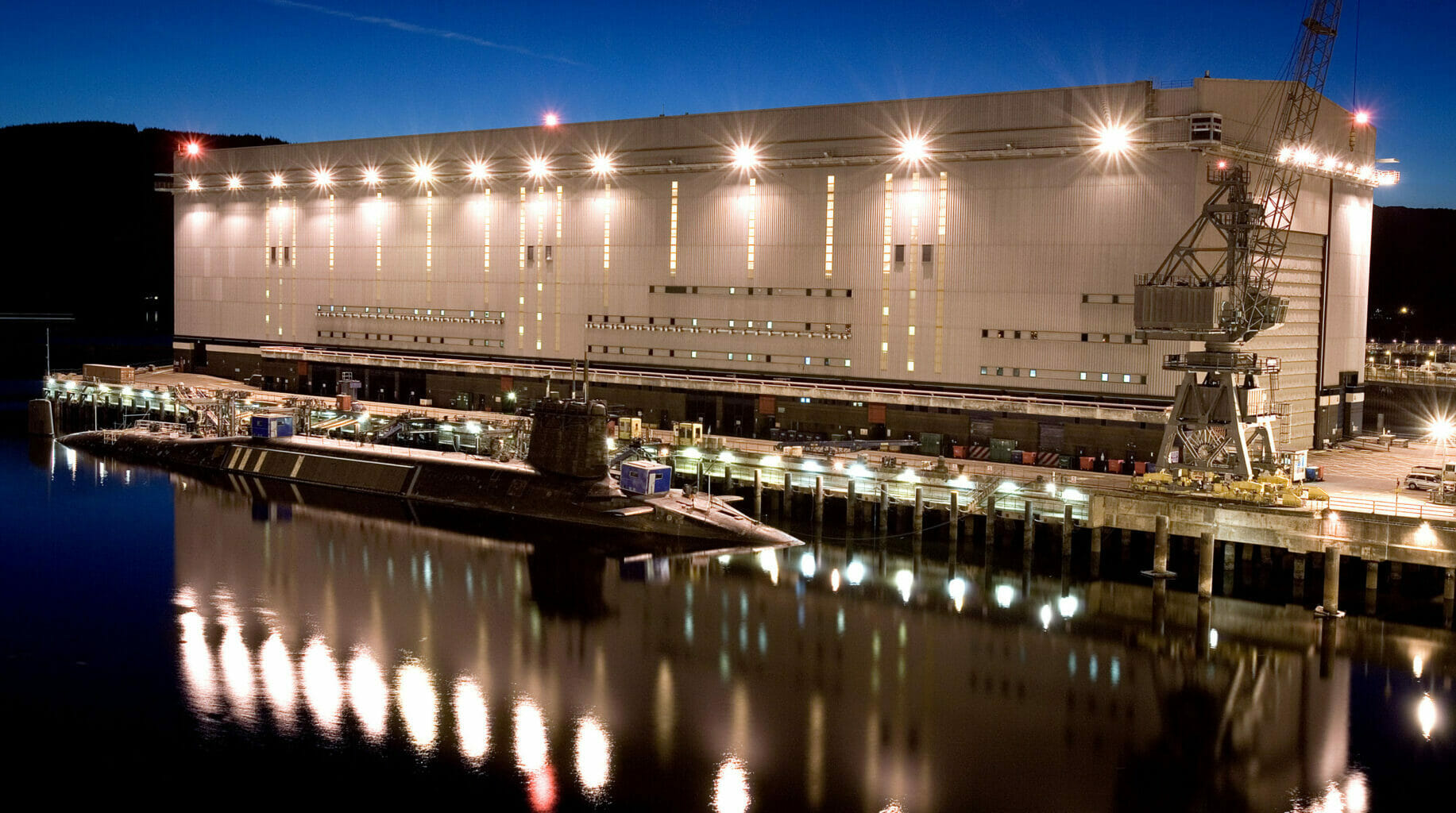The number of nuclear safety incidents recorded by the Ministry of Defence at Faslane and Coulport on the Clyde has rocketed by a third in a year, The Ferret can reveal.
MPs at Westminster were told that the total number of “nuclear site events” at the two Trident bases increased from 153 in 2021 to 204 in 2022. Some more serious incidents doubled in frequency, and figures for the first three months of 2023 suggested further rises.
Campaigners accused the Ministry of Defence (MoD) of failing to learn from its mistakes. They warned that serious safety lapses could cause “catastrophic accidents” and “utter devastation for Scotland”.
The MoD insisted it had a “robust safety culture that learns from experience”. The safety significance of the incidents was “low”, it said, and none had harmed health or caused radioactive pollution.
The MoD has not provided any details of individual incidents. It suggested they could include “equipment failures, human error, procedural failings, documentation shortcoming or near-misses.”
Faslane on the Gare Loch, near Helensburgh, is the UK Government’s base for nuclear-armed Trident submarines and other nuclear-powered submarines. Coulport, nearby on Loch Long, is where the nuclear warheads are stored.
The 204 incidents reported overall at the two bases in 2022 were by far the highest in four years, with a further 58 reported in January to March 2023. The number of incidents rated as category C rose from 10 in 2021 to 27 in 2022.
The MoD previously defined category C incidents as having “moderate potential” for radioactive releases which could cause “unplanned individual exposure to radiation”. There could also have been a “failure of line of defence or protection”.
The number of incidents rated as category D increased from 41 in 2021 to 88 in 2022. That meant there was a “low potential for release” but an “adverse trend” that could affect safe operation, according to the MoD.
There were a further 87 incidents in 2022 classified as “below scale”. The MoD described them as “of safety interest or concern, including human error, equipment or process failures that cause near misses abnormal occurrences.”
There were two incidents in 2022 and one in 2023 given the second highest categorisation of B. That meant there was “actual or high potential” for a release of radioactivity which could have caused “unplanned individual exposure to radiation”. Site safety rules could have been breached or “significantly” prejudiced.
Nuclear site events at Faslane and Coulport
| Year | Category B | Category C | Category D | Below Scale | Total |
|---|---|---|---|---|---|
| 2019 | 1 | 6 | 50 | 101 | 158 |
| 2020 | 0 | 1 | 26 | 122 | 149 |
| 2021 | 3 | 10 | 41 | 99 | 153 |
| 2022 | 2 | 27 | 88 | 87 | 204 |
| 2023 (Jan-March) | 1 | 8 | 32 | 17 | 58 |
In total since 2019, the MoD has reported 722 nuclear safety events in all categories. None have been defined as category A – the most serious involving “actual or high potential for radioactive release to the environment or over exposure to radiation”.
The MoD figures were released in response to a parliamentary question by the SNP MP for Edinburgh North and Leith, Deidre Brock. They were the “most alarming yet” and suggested that “lessons simply aren’t being learnt”, she said.
She questioned whether the incidents were related to “poor working conditions” or “terrifying incompetence and lack of care” by the MoD. “A serious error on the Clyde could result in utter devastation for Scotland, with huge numbers of casualties and effects lasting for generations,” she told The Ferret.
“We have a right to know the nature of these incidents and why safety records aren’t improving. The MoD needs to provide answers urgently on what it’s doing to get on top of these safety breaches.”
Catastrophic accidents start with small mistakes.
Lynn Jamieson, Scottish Campaign for Nuclear Disarmament
The Scottish Campaign for Nuclear Disarmament pointed out that carefully recording nuclear safety events was supposed to promote safety and learning from mistakes. “A rising trend of incidents indicates the opposite,” said campaign chair, Lynn Jamieson.
“Catastrophic accidents start with small mistakes. The unnecessary risk of such an accident for Scotland, and particularly Glasgow, is one facet of the general insanity of a ‘defence’ that would inflict genocide and ecocide on half the planet.”
When he released the figures on 20 April 2023, the then-defence minister, Alex Chalk, stressed that the safety significance of the incidents was low.
“Nuclear site event reports are raised to foster a robust safety culture that learns from experience, whether that is equipment failures, human error, procedural failings, documentation shortcoming or near-misses,” he said.
“None of the events caused harm to the health of any member of staff on the naval base or to any member of the public or have resulted in any radiological impact to the environment.”
An MoD spokesperson added: “We have robust safety measures in place at all MoD nuclear sites and we take safety incidents very seriously. Our nuclear programmes are subject to regular independent scrutiny and reviews.”
Cover image thanks to Ministry of Defence. This story was published in tandem with The Sunday Post.















Warning!
You are describing in open forum, locations of nuclear arsenal etc etc to public